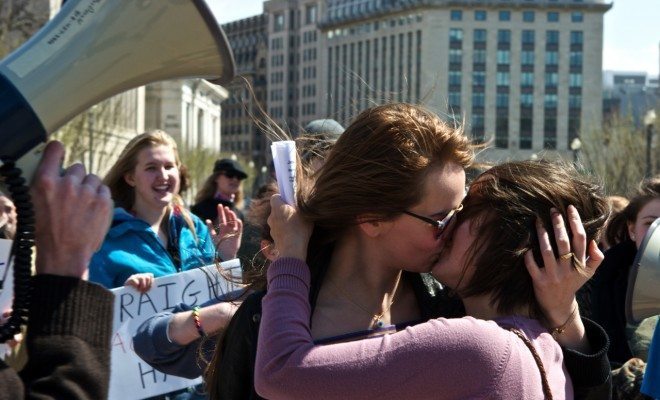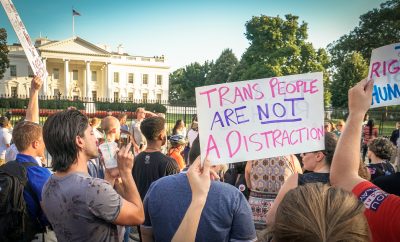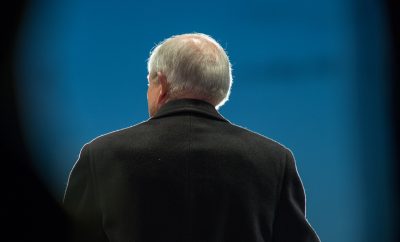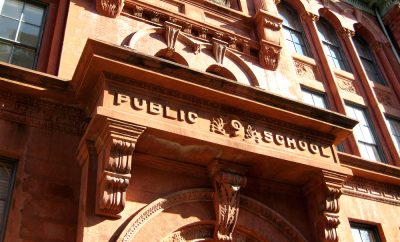
News
Good Call, SCOTUS: Conversion Therapy Banned in California
Despite the uproar about some of the Supreme Court’s latest rulings, there was also recently a lesser-known progressive SCOTUS decision that deserves applause. The court decided to not hear two related challenges–Pickup v. Brown and Welch v. Brown–to California’s ban on LGBT conversion therapy. The Pickup suit was brought by David Pickup, a therapist and spokesperson for the National Association for Research & Therapy of Homosexuality (NARTH); the plaintiff in the Welch case was Donald Welch, a San Diego pastor. The two suits were backed by religious and anti-LGBT groups in California, but because of SCOTUS’s dismissal, the ban on conversion therapy will go into effect.
In both Pickup and Welch, the plaintiffs claimed that developing adolescents have the choice between heterosexuality or homosexuality. They not only see LGBT orientation as a choice, but also as one that can be corrected and changed with treatment. These suits attested that the minors this ban applies to can reject their unwanted urges. They argue that counselors can help these children in the same way that fitness trainers and nutritionists help people who struggle with their weight. From this point of view, the plaintiffs argued that the ban violated the “constitutional rights of the counselors or parents.“
But what about the rights of the minors? Why weren’t they the ones being discussed in the appeal? Overall, the cases seemed to bypass the minors, who would actually be receiving this conversion therapy, and discussed mostly the rights of their narrow-minded parents or “counselors.” The appeal did claim that the minors firmly believed their same-sex attractions were wrong, unwanted, and correctable. But that being said, those minors could have also been heavily influenced by their families, conversion therapists, and others. It’s easy to agree that your sexual attractions are wrong when the adults you look up to–parents, societal leaders, and religious authorities–are telling you that you’re wrong.
There are also many scientific flaws in conversion therapy. Dr. Jack Drescher MD, a distinguished Fellow of the American Psychological Association, states, “not only is homosexuality ‘not a choice,’ as most efforts to try and change a person’s sexual orientation fail, but some attempts to change can cause harm or damage to an individual’s well-being.” Studies have found that there are no “methodologically sound” studies to support the use of sexual orientation conversion therapy, thus discounting any scientific proof to support these practices.
Furthermore, science has proven that, besides being completely ineffective at converting someone’s sexuality, these therapy techniques can result in permanent psychological and emotional damage to LGBT youth. Instances of societal prejudice and familial rejection have resulted in LGBT youth being nearly six times as likely to report high levels of depression, and more than eight times as likely to have attempted suicide. The pressure that closeted LGBT kids face from family to reject their feelings can be confusing and traumatic. Openly gay youths, or those that have admitted their urges and sought advice from parents, can be met with furious disgust, and even disowned. These reactions, especially from the people that are supposed to provide unconditional love, can be heartbreaking and life-threatening. Conversion therapy only prolongs and falsely validates these reactions.
This issue is tied to the Hobby Lobby case in a way, because some critics were worried that the precedent set in Hobby Lobby would “open the floodgates” to suits from companies asking for religious exceptions to laws. Fortunately, the judges explicitly stated in their decision that their ruling was unique to the specific contraceptive case. The decisions in Pickup and Welch serve as some indication that that will hold true. The Court’s decision not to hear those cases was handed down just moments before the Hobby Lobby decision, possibly proving that religious challenges are not going to end up a SCOTUS free-for-all. While Hobby Lobby certainly made more headlines, Pickup and Welch are incredibly important as well.
The decision on behalf of the Supreme Court not to hear the religious appeal to the ban on LGBT conversion therapy was not only a victory for gay, lesbian and transgender rights advocates, but also set an important legal precedent. In refusing the appeal, the court allowed the official prohibition to finally be enforced in California after being held up by these law suits. This law was the first of its kind, signed back in 2012, and was followed by similar legislation in New Jersey about a year later. In my opinion, no one can use guilt and anxiety to induce change, and call it therapy or counseling. In my book, and fortunately the Supreme Court’s as well, they’re just plain wrong.
—
Erika Bethmann (@EBethmann) is a New Jersey native and a Washingtonian in the making. She is passionate about travel and international policy, and is expanding her knowledge of the world at George Washington University’s Elliot School of International Affairs. Contact Erika at staff@LawStreetMedia.com.
Featured image courtesy of [@mjb via Flickr]








Comments